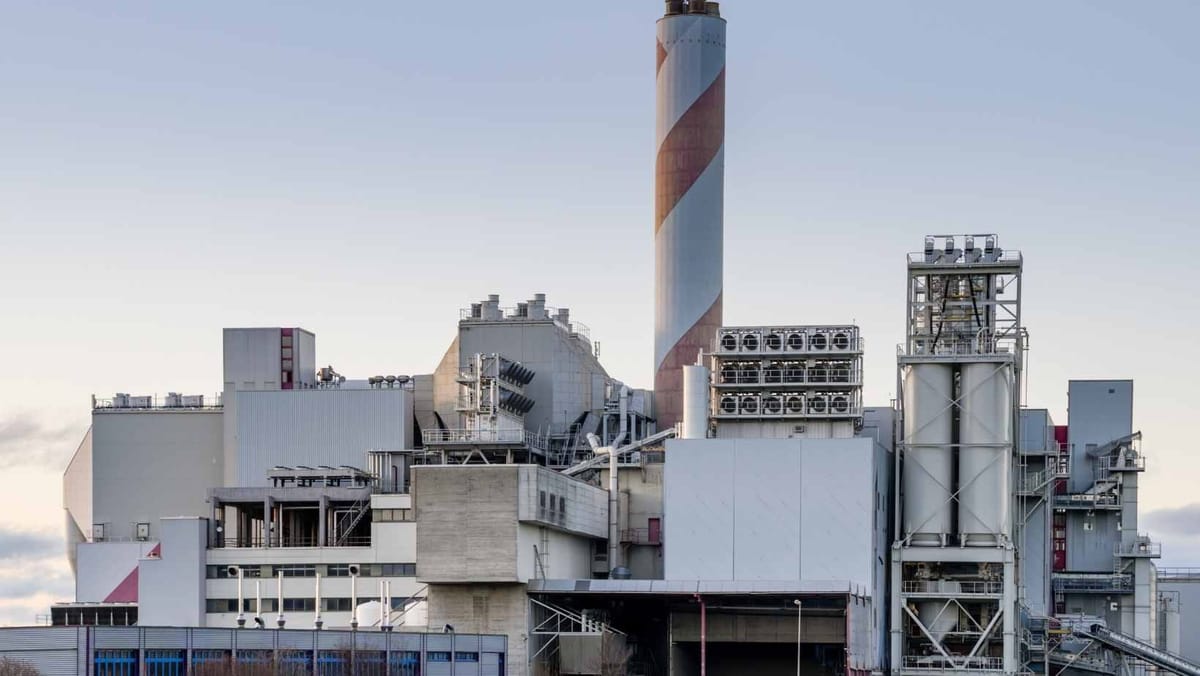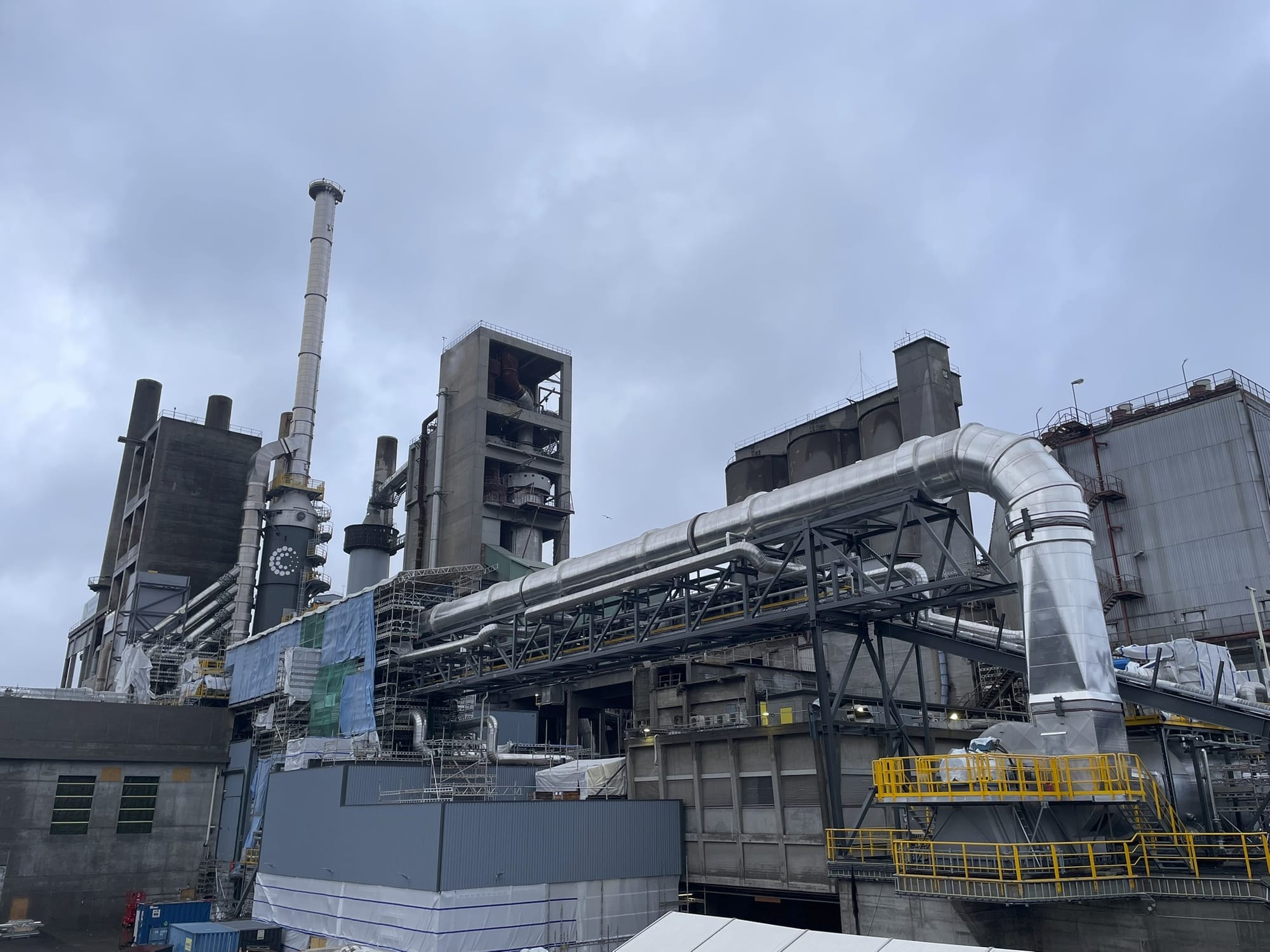Trump admin cuts $3.7B for industrial decarbonization and carbon capture
The decision will devastate ambitious efforts to cut emissions from heavy industry ranging from food production to chemicals.

This story was originally published by Canary Media.
The Department of Energy announced Friday that it is canceling over $3.7 billion in funding for projects that would cut carbon emissions and toxic air pollution from power plants and industrial sites, ranging from cement kilns to ketchup-processing plants.
The DOE shared a list of the projects to be cut with Canary Media on Friday, which showed that more than half of the awards under the ambitious Industrial Demonstrations Program, housed under the Office of Clean Energy Demonstrations, will be terminated. OCED funding focused on carbon capture at gas-fired power plants is also impacted.
DOE claimed the projects “failed to advance the energy needs of the American people, were not economically viable, and would not generate a positive return on investment of taxpayer dollars.”
But advocates disagree. Not only would the projects kickstart efforts to clean up industries that are notoriously tricky to decarbonize — they would have generated serious economic benefits, too.
Analyses from groups including the Center for Climate and Energy Solutions and the American Council for an Energy-Efficient Economy have found that federal spending from OCED would have created hundreds of thousands of jobs nationwide and helped position U.S. industries to compete in international markets that are increasingly demanding cleaner materials and products.
Stakeholders have for months expected the Trump administration to cut the OCED awards, which were authorized under the Biden administration by the 2021 bipartisan infrastructure law and the 2022 Inflation Reduction Act.
In March and April, reports surfaced of plans by Elon Musk’s Department of Government Efficiency to eliminate the office’s $6 billion Industrial Demonstrations Program, cut carbon capture and sequestration projects, and cancel billions of dollars of funding for clean-hydrogen hubs based in Democratic-leaning states.
Today’s announcement doesn’t include any hydrogen-hub funding cuts. But the feared elimination of money for carbon capture and industrial decarbonization has become a reality.
The Trump administration is getting rid of funding for several efforts to decarbonize the production of cement, one of the most carbon-intensive industries in the world. That includes $189 million for Brimstone and $87 million for Sublime Systems, two startups pioneering new low-carbon cement production methods. Global cement giant Heidelberg Materials will lose its $500 million award to capture carbon emissions at a massive existing cement plant in Indiana. And the National Cement Company of California won’t receive its $500 million grant to take a multi-technology approach to cutting emissions from its plant in Lebec, California.
The DOE is also pulling funding for projects to replace fossil-fueled industrial heating equipment with heat pumps, electric boilers, and thermal energy storage systems.
Kraft Heinz will lose its $170 million award to install clean heat technologies at 10 of its food production facilities. Beverage giant Diageo North America will no longer receive the $75 million it was promised to help install thermal energy storage systems from startup Rondo Energy at production facilities in Kentucky and Illinois. And Texas-based industrial heat pump manufacturer Skyven Technologies, which had been awarded a $145 million grant to install its technology at a New York state ethanol plant, was listed on DOE’s spreadsheet as having a $15 million grant rescinded. (DOE did not immediately respond to inquiries to determine whether Skyven was set to lose only part of its $145 million grant or if DOE’s spreadsheet was in error.)

Projects to cut pollution from factories that make metals are also on the chopping block. That includes a $75 million grant to back American Cast Iron Pipe Co.’s “Next Gen Melt Project,” which would have lowered emissions from iron and steelmaking at its site in Birmingham, Alabama. It also includes $75 million for United States Pipe and Foundry Co. to replace a coal-fired furnace with electric arc furnaces.
The DOE’s cancellations will also impact several projects seeking to reduce carbon emissions from glass production, including $75 million for Gallo Glass in Modesto, California; $57 million for Owens-Brockway Glass Container in Zanesville, Ohio; and $45 million for Libbey Glass in Toledo, Ohio.
Friday’s list also includes projects to cut carbon emissions from chemicals production, including $100 million for Ørsted to capture and use industrial carbon dioxide waste to make shipping fuel at its Star e-Methanol facility in Texas; $375 million for Eastman Chemical Co.’s plastics recycling project in Longview, Texas; and $331 million for Exxon Mobil to use hydrogen instead of fossil gas for ethylene production in Baytown, Texas.
Funding for carbon capture and storage projects at power plants will be scrapped, too. Calpine will not receive a pair of $270 million awards to retrofit power plants in Texas and California.
The list did not include some high-profile metals decarbonization projects, like the $575 million in grants set to flow to two Cleveland-Cliffs steel facilities in Pennsylvania and Ohio — the latter in Middletown, Vice President JD Vance’s hometown — or the $500 million for Century Aluminum to build a “green smelter,” likely in Kentucky.
What remains unclear is the extent to which Friday’s cancellations have disrupted ongoing construction, hiring of workers, or other unrecoverable commitments from companies impacted. Firms have been tight-lipped about plans to navigate the consequences of federal funding clawbacks. All of the awards required participating companies to invest at least as much as they were set to receive in federal grants.
A representative of Sublime Systems told Canary Media that the company was “surprised and disappointed” by DOE’s decision to cut its grant. Sublime this week announced a deal with Microsoft, which said it would buy 600,000 tons of the low-carbon cement to be produced from the startup’s first commercial-scale plant in Holyoke, Massachusetts — a plant backed by DOE’s grant.
“It is our hope to continue to partner with the DOE to show a success story of American innovation and ingenuity at its finest,” Sublime’s representative said in a Friday email. “Nevertheless, we have prepared for the possibility of this disappointing outcome and are evaluating various scenarios that leave our scale-up unimpeded.”
The projects are without a doubt now on far shakier financial footing, and advocates do not expect that they’ll be able to move forward without the federal funding. Should they fail, the effects would be profound, according to Evan Gillespie, a partner at advocacy group Industrious Labs.
“[The projects] would have helped catapult the U.S. into a leadership position in the technologies that will bring down emissions and pace the next generation of industrial evolution,” he said. “Killing these projects means more emissions, more pollution, and more people getting sick.”
Energy Secretary Chris Wright, a former oil and gas industry executive who insists that climate change is not a crisis, said in Friday’s announcement that the decision would benefit U.S. taxpayers.
“While the previous administration failed to conduct a thorough financial review before signing away billions of taxpayer dollars, the Trump administration is doing our due diligence to ensure we are utilizing taxpayer dollars to strengthen our national security, bolster affordable, reliable energy sources and advance projects that generate the highest possible return on investment,” he said.
Industrial decarbonization advocates pushed back.
“This program could have been a centerpiece of achieving the administration’s goal to bring manufacturing back to the United States,” Steven Nadel, executive director of the American Council for an Energy-Efficient Economy, said in a Friday statement. “Choosing to cancel these awards is shortsighted, and I think we’re going to look back at this moment with regret. Locking domestic plants into outdated technology is not a recipe for future competitiveness or bringing manufacturing jobs back to American communities.”
